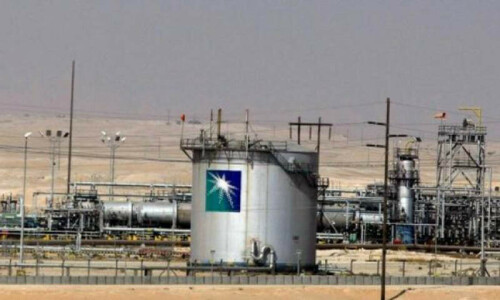ISLAMABAD: Government expenditure on agriculture sector, both as a percentage of total outlays and as agricultural GDP, is far lower in Pakistan than other countries in South and Southeast Asia, the World Bank said in a report.
There is limited diversification in crop agriculture across all farm sizes. The major focus is on cotton, rice, sugarcane and wheat rather than on value-added products such as orchards, pulses, vegetables and expanding cropped areas under cotton.
About 70 per cent of farms with fewer than five hectares grow grains, compared with 55pc of farms of 20 hectares and above. Likewise, 45pc of small farms grow wheat, compared with closer to 40pc of medium to large farms. About 10pc of small farms grow cotton, compared with 14pc of medium to large farms.
Diversification on farms of 20 hectares and above seems to be slightly higher than on farms with fewer than 5 hectares. Over-reliance on the traditional four crops reflected government support including subsidies, procurement politics, research and extension, that is heavily focused on the major crops, inefficient markets for non-major crops and livestock products, insufficient technical knowledge regarding on-farm production and post-harvest handling of high-value commodities, and difficult and costly access to finance.
The World Bank report suggested that there is substantial scope for accelerating broad-based agricultural growth by stimulating productivity, technology and innovation, better water management, an improved regulatory regime and agricultural trade policies, and a smarter subsidy regime.
Fundamental reforms in agricultural research and extension systems, marketing of crops and livestock products (market reforms) as well as water management policies and institutions, could provide greater efficiency to the sector.
Apart from water stress, productivity is also considerably lower in Pakistan than in other countries. Crop yields, both per hectare and per cubic meter of water, are much lower than international benchmarks.
This is due to excessive reliance on traditional irrigation methods (flood irrigation) combined with the basic absence of pricing of surface water, which together cause huge water losses due to overuse, excessive run-off, deep percolation and evaporation.
Yield growth of the four major crops has slowed since the 1990s. Rice yields grew at an average annual rate of 5.6pc in the 1960s, falling to 2.9pc in the 1990s and just 1.7pc in the period 2000-10.
A similar pattern can be observed in wheat, with average annual yield growth of 3.6pc in the 1960s, 3.1pc in the 1990s, 0.9pc in the period 2000-10, and negative 0.4pc in the period 2011-15.
For sugarcane, the decline was from 3.6pc in the 1960s, 1.2pc in the 1990s, 1.4pc in the period 2000-10, and negative 0.3pc in the period 2011-15.
The story of cotton is no different, with average annual yield growth of 2.7pc in the 1960s, 2.8 pc in the 1990s and 1.3pc in the 2000s. Moreover, average yields tend to be below the achievable upper bound of progressive farmers’ yields.
The national average yields of major crops such as rice and wheat are about 45pc of progressive farmers’ yields. The yield gaps are even greater for some cash crops, such as sugarcane in Sindh (73pc) and Punjab (62pc). Likewise, the yield gap for cotton and maize is 31pc and 58pc, respectively.
Published in Dawn, May 21st, 2017











































